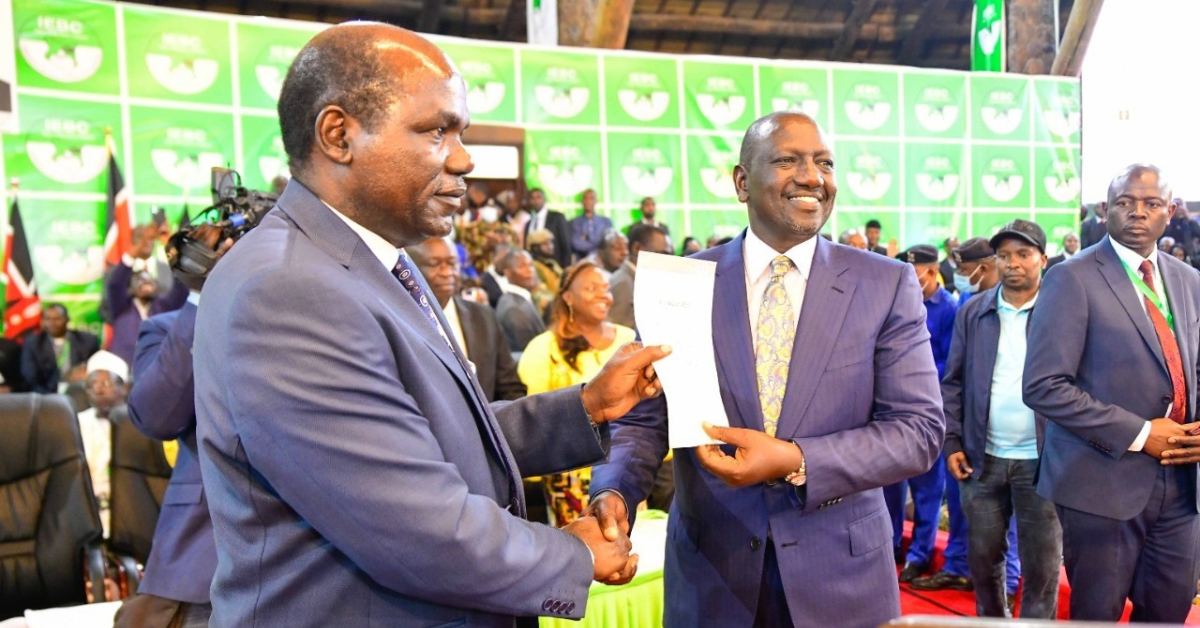It is said that human attention span – the amount of time a person can concentrate on a task without being distracted – is about 20 minutes, 40 minutes if you really stretch it. If this is true, the attention span of the crowd during the inauguration of Uhuru Kenyatta this past Tuesday, must have set a new record. Throughout the entire ceremony – from the judicial and military components to the long speeches – the crowd sustained more than two hours of hysterical hooting and screaming. It is an amazing feat if you consider that the audience consisted mostly of the young, the so-called ‘Next Generation ’. Next as in click next – the hallmark of the impatient digital generation.
Good. Now let us see how long a related concept –call it the human patience span – will endure.
President Uhuru Kenyatta, like any new president, has a small window of opportunity to create a strong impression, to imprint his style in the public psyche, and to begin to shift public perception decisively in one direction.
In matters of transformational political leadership, Kenyans are used to deferring their dreams. They have seen so many false dawns. They saw the ‘yote yawezekana’ dawn of 2002 go up literally in smoke five years later. They saw the promise of zero tolerance to corruption – complete with an anti-corruption advisor at State House – turn not only into a tolerance of corruption, but a complete embrace of it. They saw the unity shown in 2002 when Kenyans voted without regard to tribe quickly turn into “it is our turn to eat” and a return to the worst form of ethnic discrimination.
Kenyan’s can therefore be excused if they view the latest dawn with a measure of déjà vu. They have been there before. And yet hope springs eternal for the Uhuru Kenyatta presidency.
Words such as transformational, sea change, double-digit growth, face of Kenya, and such have been bandied around. Fine words. And they may well come to pass depending on how the Kenyan ‘attention and patience span’ is handled by the ‘dynamic duo’ during the 100-days window of opportunity.
Incidentally, by calling them the ‘dynamic duo’, retired President Mwai Kibaki inadvertently offered a hint on one of the first things a Kenyatta and Ruto presidency needs to do immediately: rebrand.
The dynamism of the duo was clearly evident in the way they planned and executed the presidential campaign. Especially impressive was the way they aligned strategy and resources to deliver superior results. The 100-day window provides them with the opportunity to deepen the ‘dynamic duo’ brand by providing an answer to the question: dynamic in what?
In The National Alliance’s ‘I Believe’ we can see an affirmation of the important inner bedrock of self-confidence. In the United Republican Party’s ’Sema na Kutenda’ we can see the necessary fuel for active commitment evident in the ‘saying and doing.’ The ‘dynamic duo’ brand should therefore manifest itself in self-confident execution of carefully planned programmes. Carefully selected and executed programmes during the 100-day window targeting for example corruption, ethnic discrimination, insecurity and unemployment, could dramatically shape both internal and external perceptions of the country and its leadership. Rebranding through consistent positive action is perhaps the single most critical strategy that President Kenyatta and his Deputy President Ruto can employ to transform the country.
But it will not be easy – for at least three reasons.
First, is the legacy challenge. For 50 years, the dominant narrative goes something like this: you seek public service (or access to public servants) because it is the short-cut to wealth and influence. If you steal or commit economic crimes, chances of getting away with it are extremely high. This – the legacy of corruption and impunity – is what the Kenyatta presidency will be up against.
Second, is the trust challenge. Trust is always an issue in politics – and more so in a coalition government. This government is principally a coalition of TNA and URP. During the Cold War when the USA and USSR were trying to lower tensions through arms reduction agreements, the late US President Ronald Reagan’s mantra was ‘trust but verify.’ If they want to keep the coalition strong, our president and his deputy will do well to remember Reagan’s mantra. There will be too many self-seeking anarchists that will try to torpedo the coalition by planting seeds of mistrust. It will therefore be necessary to deliberately introduce confidence-building measures from time to time.
Finally, there is the challenge of the ‘enemy within.’ This is perhaps the greatest re-branding obstacle. The enemy within consists of a circle of advisors, including long-time associates and ‘friends’. Their supposedly well-meaning advice is often irresistible. Our ‘dynamic duo’ must examine such advice closely.
But this is not just about the President and his deputy; it is also about Kenyans quitting the addiction to cynicism and whining.

